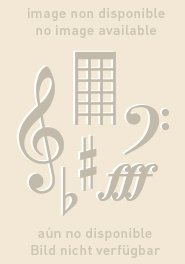Verwandte Artikel zu The Mastersingers of Nuremberg WWV 96 - Prelude - Orchestra...

Zu dieser ISBN ist aktuell kein Angebot verfügbar.
Alle Exemplare der Ausgabe mit dieser ISBN anzeigen:
Biografía del autor:
The childhood of Richard Wagner (born on 22 May 1813) was divided between Dresden and Leipzig, where he had his first composition lessons in 1831/32 from Christian Theodor Weinlig, cantor at the Thomasschule. In 1833 he became chorus master at the Würzburg theatre. Later he held brief appointments as music director at theatres in Bad Lauchstädt, Magdeburg, and Königsberg, where he married the actress Minna Planer in 1836. A conducting engagement took him to Riga in 1837, but in 1839 Wagner and Minna left Riga and his creditors under cover of night, heading for Paris over the stormy Baltic Sea. There he remained for three hard years, completing Rienzi (1840). His years in Paris turned into a bitterly disappointing experience. He eked out something less than a living by doing musical hack-work and writing articles. His first success with Rienzi in Dresden in 1842 led to his appointment as musical director (Hofkapellmeister) at Dresden in 1843, and shortly afterwards Der fliegende Holländer as well as his innovative Tannhäuser were performed for the first time. Some of his outstanding achievements were a performance of Beethovens Ninth Symphony and his revised version of Glucks Iphigenie in Aulis.In May 1849, having taken part in the revolt in Saxony, Wagner had to flee abroad, and after failing to establish himself as opera composer in Paris he settled with his wife in Zurich in 1857. They lived in a house on the Wesendonck estate under the patronage of the financier Otto von Wesendonck. While in Zurich he published various theoretical writings and composed Das Rheingold, Die Walküre and two acts of the opera Siegfried. While working on the Ring cycle, Wagner had fallen in love with Mathilde Wesendonck, the wife of his wealthy patron. The Ring Cycle work was interrupted in 1857 and not continued until 12 years later. He shifted his interest to a new subject, the love tragedy Tristan und Isolde. In an untenable situation in 1858 he moved first to Venice, then to Lucerne, Paris and Vienna. Although he was composing what would become some of the most famous pieces in music history, Wagner struggled financially until 1864, when Ludwig II of Bavaria called him to Munich and began supporting him. So, in 1865 Tristan und Isolde and in 1868 Die Meistersinger von Nürnberg were premiered in Munich. Already by 1866 Wagner had fallen into disfavour amongst members of the court, who were suspicious of his influence on the king. He left Munich and went to Tribschen (near Lucerne), where he married Cosima von Bülow in 1870, the daughter of his friend Franz Liszt, who always supported him humanly and artistically. Around that time Die Meistersinger was finished, and he worked steadily at the unfinished portion of Der Ring des Nibelungen and further evolved the intellectual framework for his towering mature masterpieces. In 1872 Wagner, his wife and the three children Isolde, Eva and Siegfried settled in Bayreuth. Wagner was anxious to have a special Festival Theatre for the complete cycle and spent much energy trying to raise money for it. Finally, King Ludwig II provided the necessary support. In 1872 the cornerstone was laid on Bayreuths Green Hill and the opera house was built to his personal specifications and suited to the massive fusion of music, staging, text, and scene design that his later operas entailed. The first festival an artistic triumph but a financial disaster was held there in 1876, when the complete Ring was given conducted by Hans Richter. In 1882 the second Bayreuth Festival took place with sixteen performances of Parsifal under Hermann Levi, which were financially successful. After that, Wagner and his family who had already spent the winter in Italy for some years, went to Venice where he died on 13 February 1883 of the heart trouble that had been with him for some years.
„Über diesen Titel“ kann sich auf eine andere Ausgabe dieses Titels beziehen.
- VerlagEulenburg
- Erscheinungsdatum2000
- ISBN 13 9790200205787
- EinbandPartitura
- Anzahl der Seiten64
(Keine Angebote verfügbar)
Buch Finden: Kaufgesuch aufgebenSie kennen Autor und Titel des Buches und finden es trotzdem nicht auf AbeBooks? Dann geben Sie einen Suchauftrag auf und wir informieren Sie automatisch, sobald das Buch verfügbar ist!
Kaufgesuch aufgeben